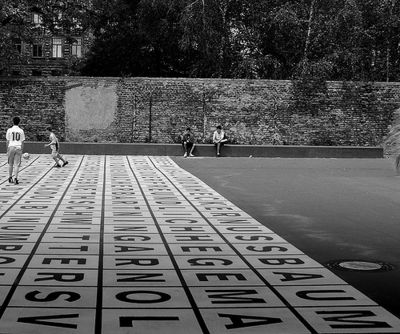Quality
| OER Handbook for Educators - Compose OER | |
|---|---|
| Compose OER | Quality | Audio | Images | Learning Support Systems | Office | Web Authoring | Video | Mobile Access | Perspectives |
In all phases of the OER cycle, attention to quality is vital. Issues around the quality of OER are debated vociferously among OER practitioners on mailing lists, at conferences and other venues where two or more are gathered. We do not attempt to cover the broad and contentious topic of OER and quality, but highlight a few things for you to keep in mind while composing, remixing and adapting OER.
During composition, think of the learners and the learning environment. Are the resources suitable and being pieced together in a way that will engage the learners and enable them to reach the required level of understanding?
|
Based on your answers, prioritize areas for adaptation that might arise. For example, objectional material should be removed immediately, factual errors should be corrected before dissemination, and consider whether or not it makes sense to localize components before remixing. Which changes will provide the greatest educational value?
Decisions on which changes to make will be constrained by the resources you have available including time, people with technical and artistic skills, etc..
Ultimately, you need to decide which changes are most helpful and practical under the circumstances.
Quality is contextual, and no-one knows the context of your own classroom and learners better than you (and the learners).
The ultimate test
Does the OER work in the classroom?
It is not uncommon for the composer to feel a strong sense of ownership and pride having built an OER, and to proceed to use it with great enthusiasm. This has been known on occasion to blind the educator to its ineffectiveness (where applicable).
So, be sensitive to the effectiveness of OER. Observe your learners and get their feedback.
Continually adapt the resources and be prepared to dispense with an OER if it is not working for your learners.
Collaborate for Quality
Whether you are composing OER for learners, for fellow educators, or for personal growth, developing OER is a learning experience in itself.
Opportunities for social construction and peer production[1] abound. Being part of a community of educators can greatly enhance your work.
Engage with the community in all phases of the OER development cycle, even the early phases of composition. There will certainly be peers with common interests facing the same sorts of challenges.
The result will be improved quality of the OER you produce, improving the overall quality of the global pool of OER.
the two diagrams illustrate the two aspects - own resources and global OER pool
Notes
- ↑ Benkler, Y. 2006. The Wealth of Networks, Yale University Press, London.
